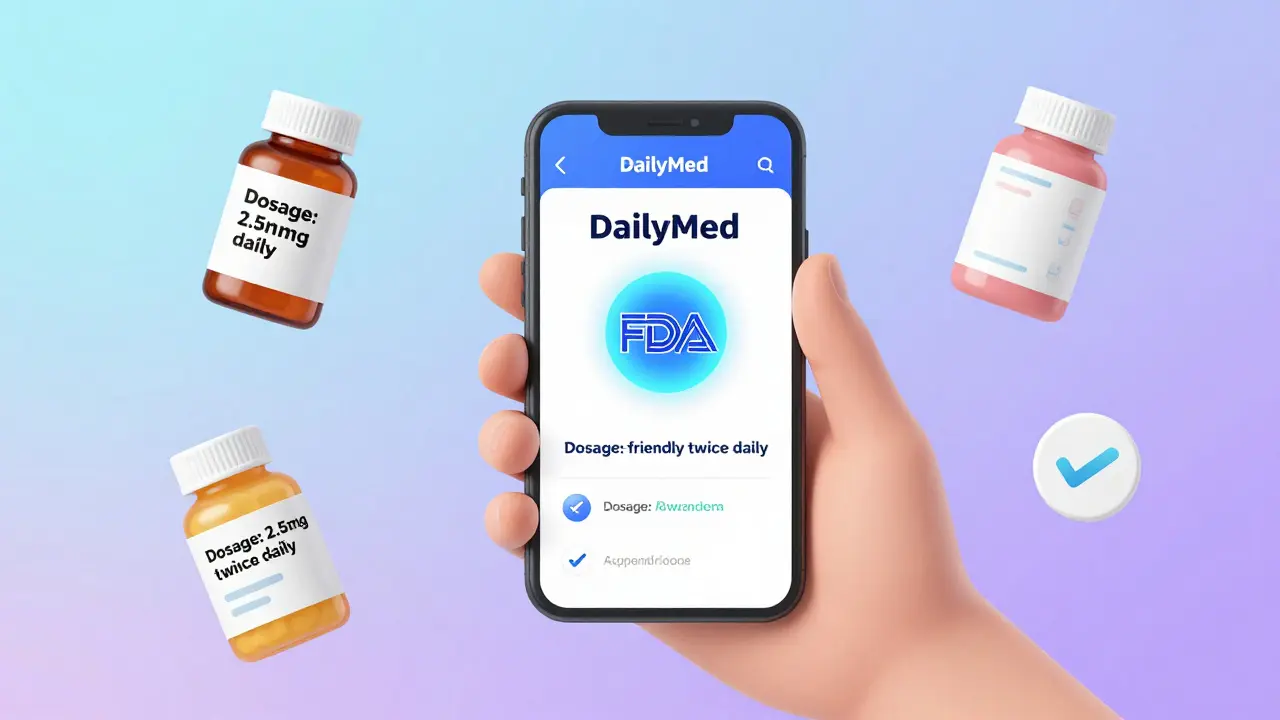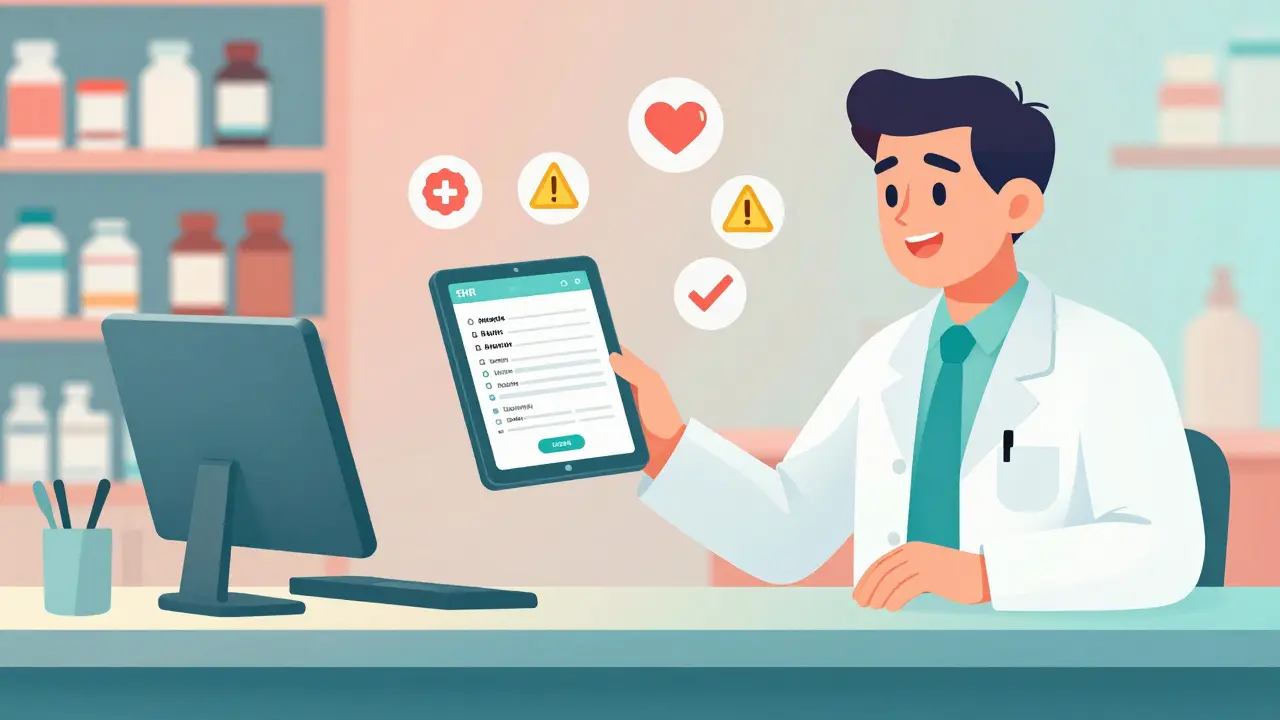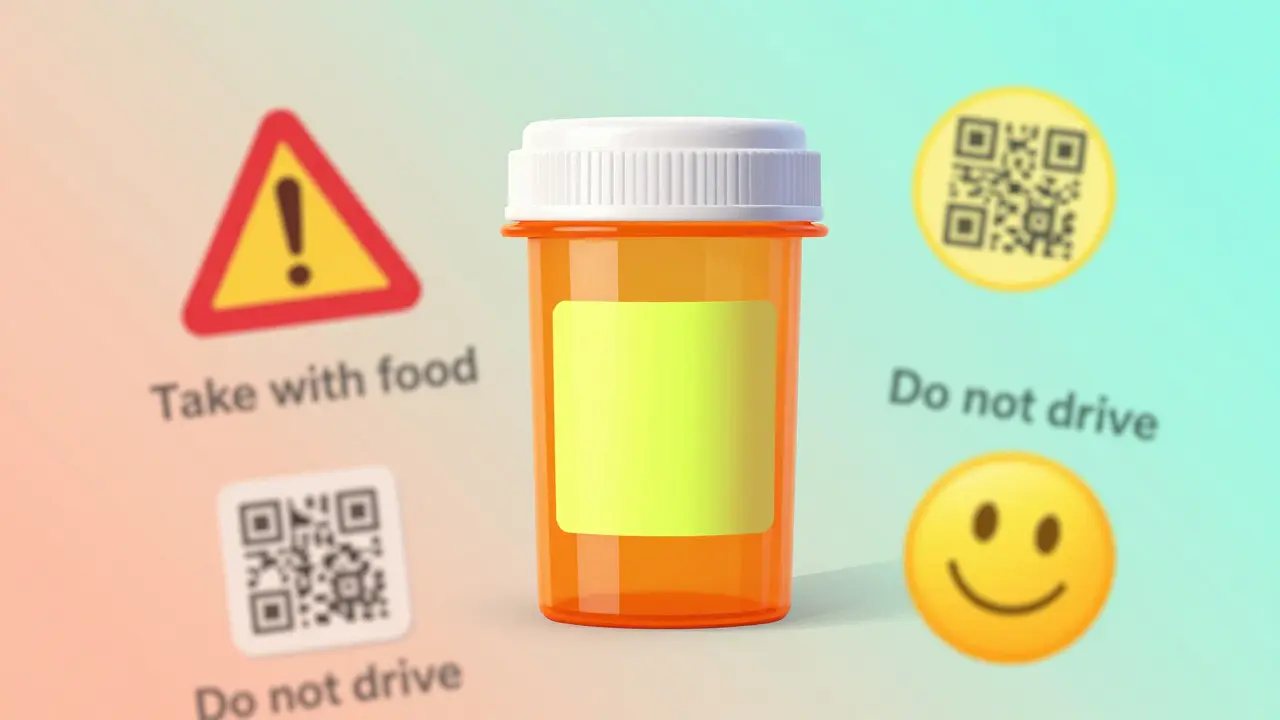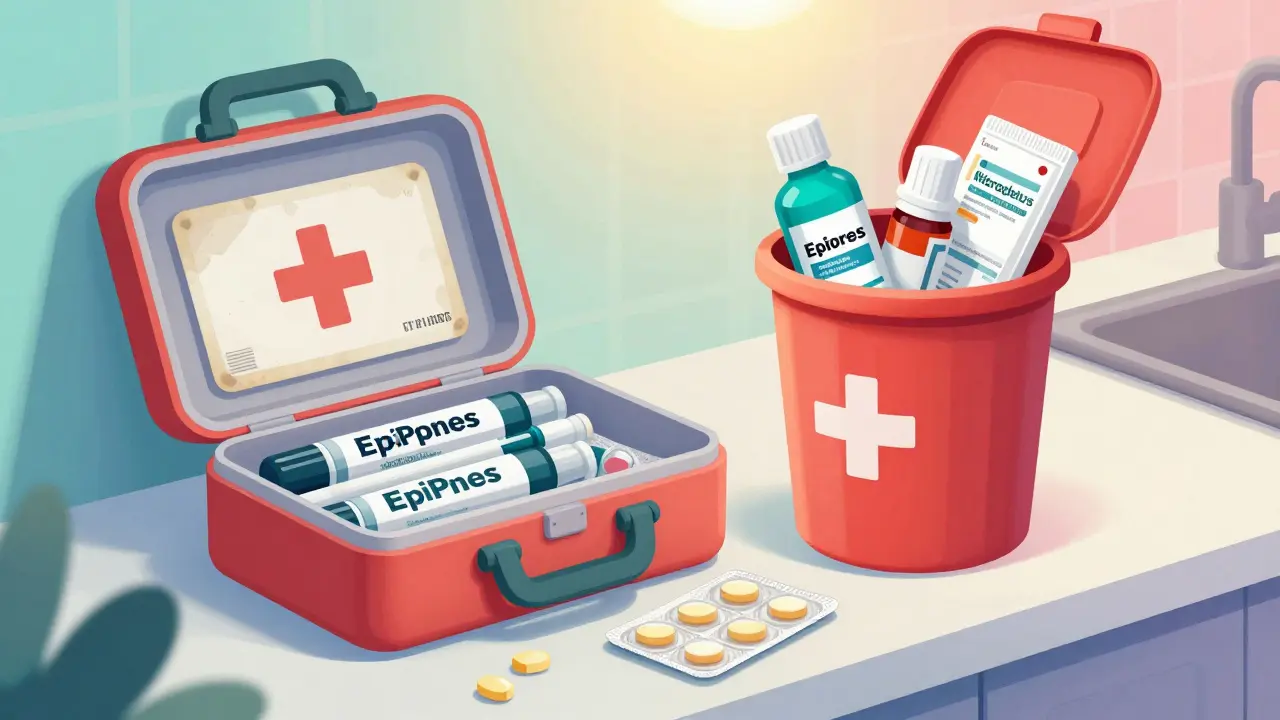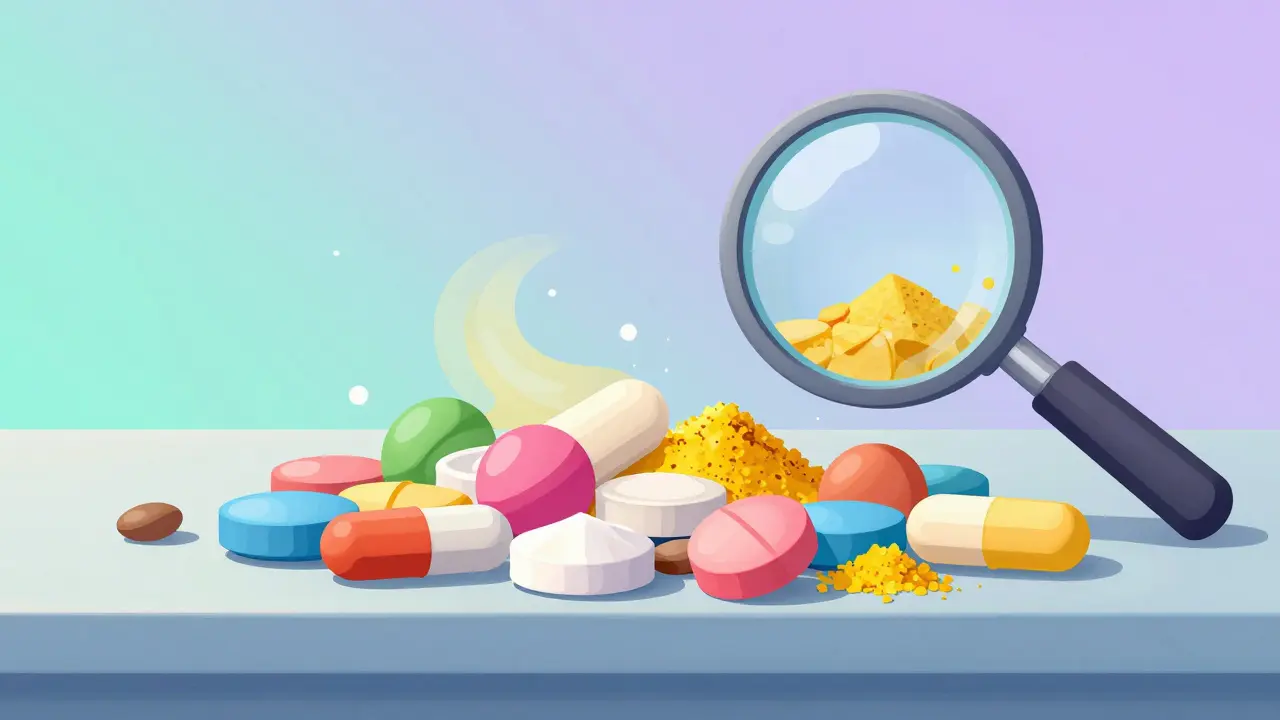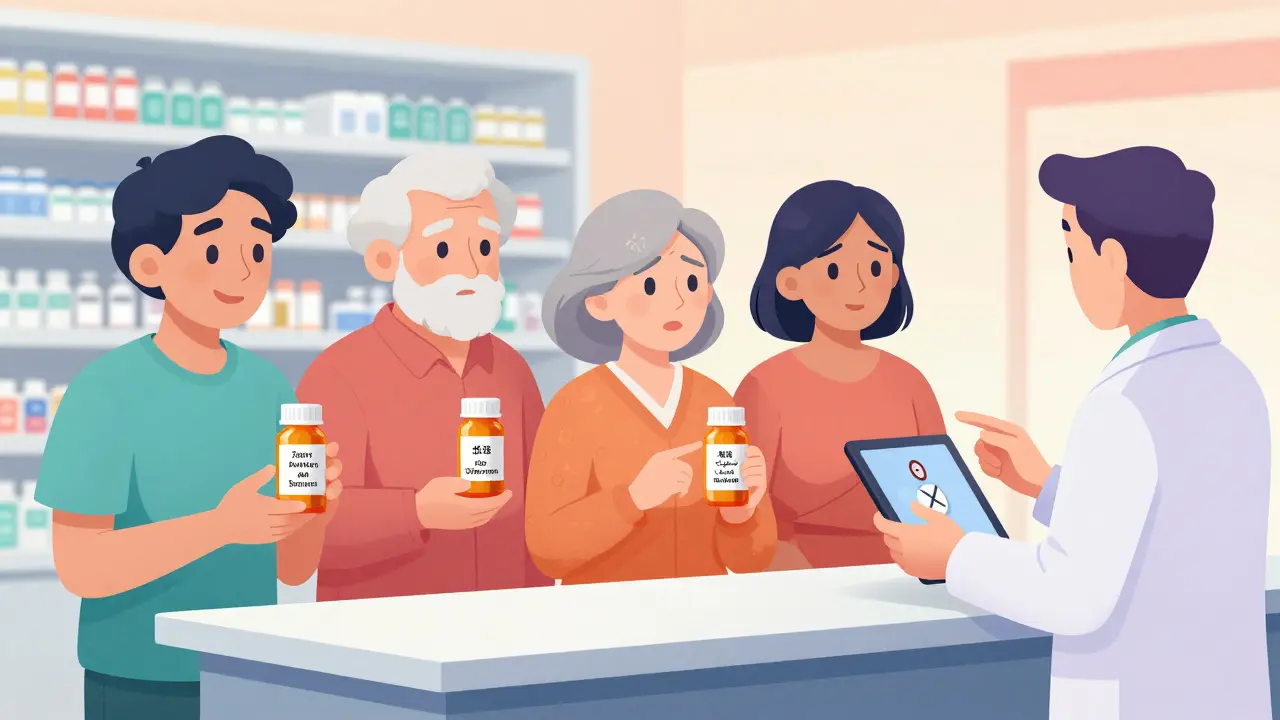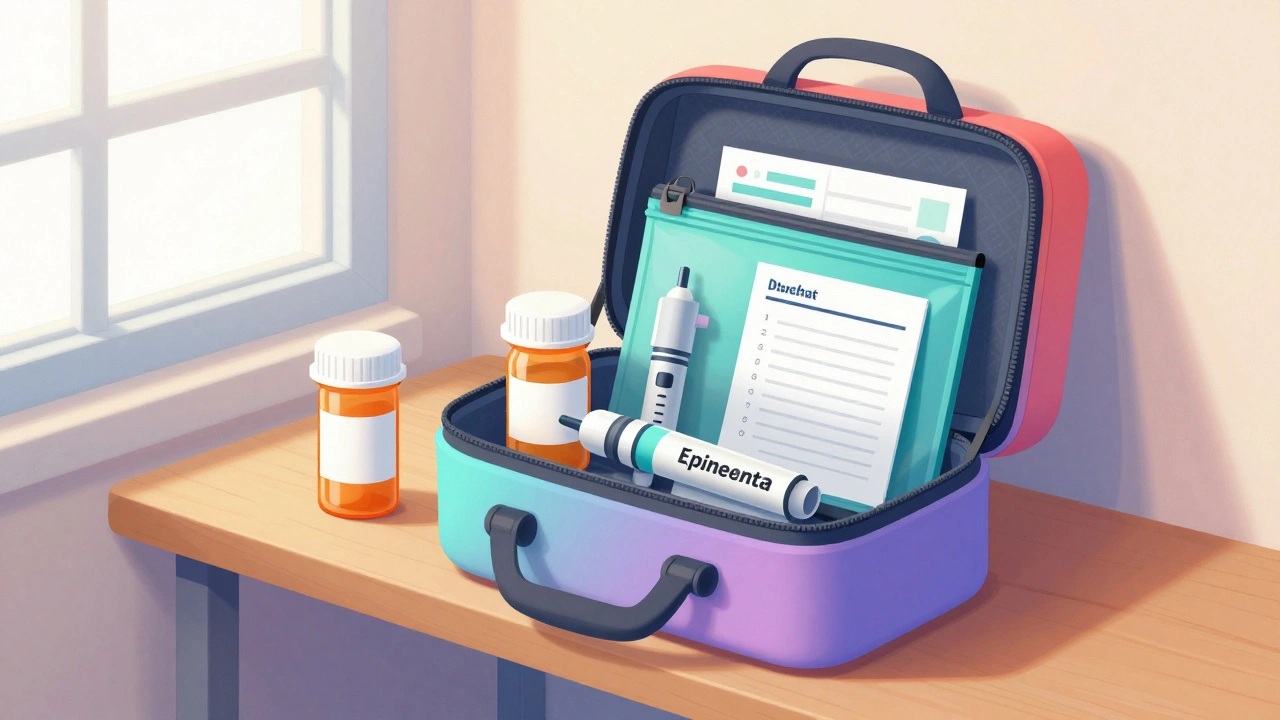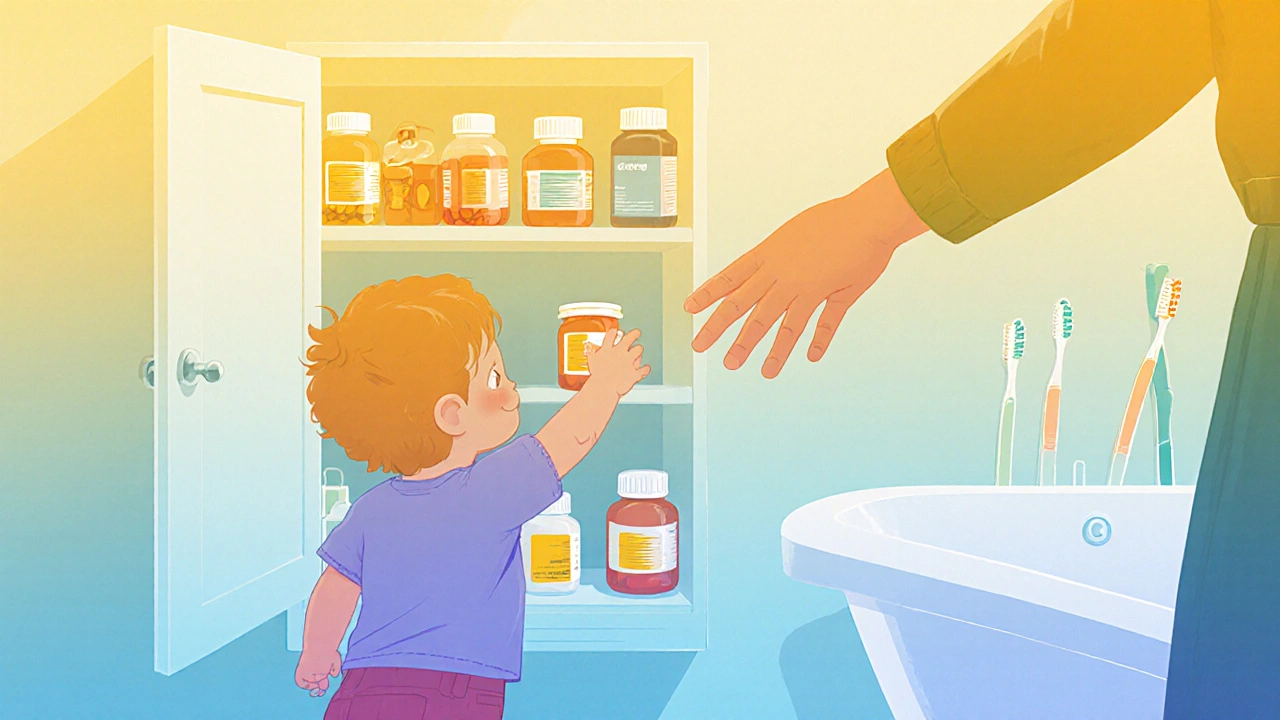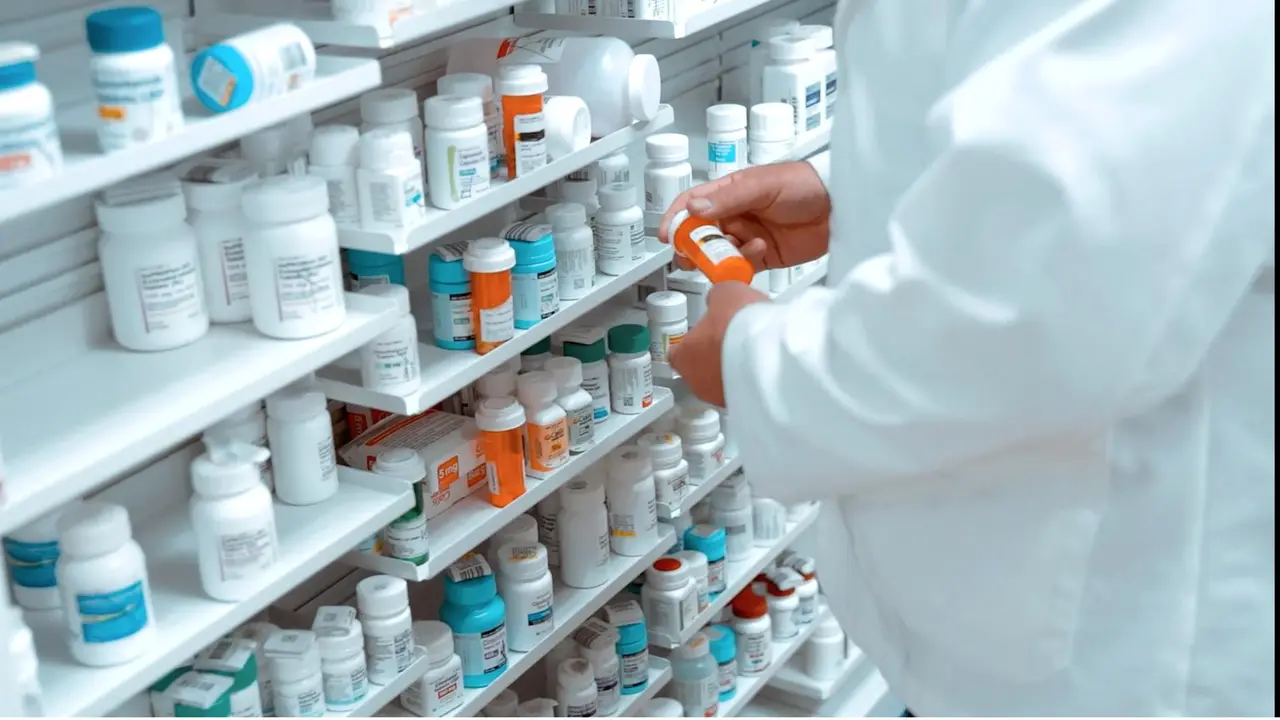Discover the only free, government-backed online drug databases trusted by patients for accurate medication safety info-DailyMed, LactMed, and DrugBank. No ads. No bias. Just facts.
Medication safety: simple, practical steps you can start today
Every year people get hurt by medicines they thought were safe. Most of the time the cause is predictable: wrong dose, mixing drugs, or buying pills from shady sites. You don’t need medical school to cut your risk — you need a few habits that actually work.
Practical rules to follow
Keep one up-to-date medicine list. Include prescriptions, OTCs, vitamins, and herbal supplements. Show it to every clinician or pharmacist you see so they can spot interactions fast.
Read labels and the patient leaflet. Know the active ingredient, how often to take it, and whether to take with food. If a leaflet uses confusing language, ask the pharmacist to explain in plain words.
Measure liquids properly. Use the dosing syringe or cup that comes with the medicine — kitchen spoons are not accurate. For pills, don’t split tablets unless the manufacturer or your doctor says it’s safe.
Check interactions before adding anything new. Simple online tools or a quick call to your pharmacist can catch dangerous combos — for example, mixing alcohol with some diuretics can cause big electrolyte shifts, and enzyme‑inducing antibiotics can make other drugs stop working.
Store medicines correctly. Keep them in a cool, dry place unless the label says otherwise. Throw away expired drugs and remove unused controlled meds from the house to prevent accidental use.
Be extra careful if you’re pregnant, breastfeeding, elderly, or have kidney or liver disease. Dosing and risk change in those situations — even common drugs can behave differently.
When buying online, stick to reputable pharmacies. Look for a UK or EU license, a clear prescription policy, and real contact details. Our site has guides on safe online sellers and how to spot scams if you want step‑by‑step checks.
When to call a pro
Seek immediate help for signs of a severe allergic reaction: swelling of face or throat, trouble breathing, hives, or sudden fainting. Call your doctor if you notice new, severe, or worsening symptoms after starting a drug — sudden mood changes, chest pain, fainting, or visible yellowing of the skin are red flags.
Don’t stop certain medicines abruptly without advice. Some drugs (like antidepressants or steroids) need tapering to avoid withdrawal or rebound effects. Ask your prescriber how to stop safely.
If you suspect a bad reaction, report it. Tell your doctor and the local medicines regulator — reporting helps catch wider safety problems faster.
Want deeper reads? Check our guides on Rocaltrol and calcium management, alcohol plus diuretics, buying Phenergan or Famotidine online, and practical tips for Lasix and Wellbutrin. Small habits prevent most medication mishaps. Start with a list and a brief chat with your pharmacist — that one step will save lots of hassle later.
EHR integration connects pharmacies and providers to share patient data in real time, cutting medication errors, reducing hospital readmissions, and saving lives. Learn how it works, why most pharmacies still lack it, and what’s changing in 2025.
Learn how to read pharmacy labels and warning stickers to avoid dangerous medication errors. Understand FDA standards, state laws, and what’s changing in 2025 to keep you safe.
Learn exactly when to replace expired OTC first-aid medications to ensure safety and effectiveness during emergencies. Critical guidance on epinephrine, painkillers, creams, and storage tips.
Inactive ingredients in generic medications can interact when taken together, causing side effects like stomach upset, rashes, or reduced drug effectiveness. Learn how to spot risky excipients and protect yourself.
Non-English speakers face dangerous risks when prescription labels aren't translated clearly. Learn how to get accurate medication instructions, what pharmacies are required to provide, and what works best to prevent deadly errors.
A medication go-bag ensures you have access to critical prescriptions during disasters. Learn what to pack, how to store it safely, and why 14 days of meds is the new standard for emergency preparedness.
Learn how to store medications safely away from children with proven, expert-backed practices that prevent accidental poisonings. From lockboxes to travel tips, these steps save lives.
Hello everyone, I wanted to share some insightful information about how to purchase Priligy online safely. It's a short but substantial read that provides a comprehensive guide to ensure you are avoiding any unnecessary risks. Remember, your health and safety should always be your top priority, so I hope you'll find this guide helpful in making secure purchases from online pharmacies.

